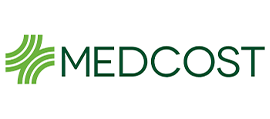Preventing Relapse at Banyan Pompano
What is a relapse prevention plan, and how can it help me solidify my recovery from drug addiction or alcoholism? Recovery treatment isn’t a one-time deal. Rather, it’s a lifelong practice. Relapse prevention programs acknowledge this fact and are designed to help you work through the temptation to fall back into substance abuse. It’s important to remember that temporary setbacks, such as relapse, are not going to last forever. A Relapse prevention program can help you think of relapse constructively—as something you’re overcoming rather than the end of all hope.
Why Do Addicts Relapse?
The exact reasons for relapse are as unique and diverse as the people who experience them. One of the most common explanations for addiction relapse is the intense hold that withdrawal symptoms and drug cravings can have. These cravings can be all-encompassing, taking up so much of an addict’s mental and physical faculties just to move through them. Withdrawal symptoms, on the other hand, can induce intense feelings of discomfort, uncontrollable mood swings, and high levels of anxiety. In some cases, these symptoms can prove fatal, making a detox program necessary.
Another important factor that contributes to relapse is the persistent nature of addiction. The brain's reward and motivational systems are altered in chronic conditions like substance use disorders. Even after a period of abstinence, these brain modifications can persist, making people more vulnerable to relapse triggers. Environmental cues, such as persons, places, or activities associated with previous substance use, may arouse strong cravings and memories, resulting in a relapse. A person may find it challenging to cope with stress, unfavorable emotions, and problems in life, which leads them to use their addictive behavior as a coping mechanism and feeds the addiction cycle.
Understanding the causes of relapse can help to establish successful relapse prevention methods, such as creating strong support networks, developing healthier coping mechanisms, and addressing underlying psychological or emotional difficulties. It is also worth considering Addicts can improve their chances of lasting recovery and lower their risk of relapse by using a comprehensive and tailored approach.
Relapse Prevention Planning
The first steps are realization, stepping forth from denial, and seeking treatment. After treatment, the work doesn’t stop. Working with an experienced professional to design a relapse prevention plan is crucial before jumping back into responsibilities and life orders. At Banyan, specialists will go over a plan that works to keep your mental wellness, physical and emotional health, and social state in tip-top condition. But the continuance of sobriety initially is carried by you after treatment, although support and guidance are available.
Unfortunately, relapse is an ever-present threat for anyone recovering from addiction or alcoholism. It can surface years after people have gained sobriety, often with little to no warning. After all, addiction is a compulsive disease that manipulates the mind, causing a chemical imbalance. But you can minimize your chances of relapse by choosing the right forms of drug treatment and with the proper planning.
Protecting Your Sobriety From a Relapse
What are some ways that I can protect myself from relapse? One of the main things you can do to protect yourself from drug treatment relapse is to choose the right treatment. For example, long-term drug treatment against drugs and alcohol is much more effective at preventing relapse than short-term treatment. A course of 90 days in a drug treatment center can reduce the risk of relapse by up to 73% versus a 30-day stay.
The type of treatment itself can be highly effective in the avoidance of relapsing. For example, relapse prevention drug treatment can help you keep a positive mindset in order to prevent falling back into substance abuse or using drugs or alcohol as a coping mechanism. Focus on your progress and where you’re going—recovery! Don’t dwell on any relapse as a failure. Instead, look ahead and keep moving toward the goal.
How to Prevent Relapse
How can a relapse prevention program at Banyan Treatment Center help me stay safe from relapse? At Banyan’s Pompano Beach drug rehab, we understand how terrifying relapse can seem. Remember, it’s only temporary, and it’s not something you necessarily have to be afraid of. Instead, it provides an opportunity to, once again, overcome.
You can stay protected from relapse by:
- Staying positive
- Avoid trigger situations
- Focusing on progress and your goal
- Meditate or find holistic approaches
- Develop a positive support system
- Communicate your cravings
- Stick to a healthy schedule
- Don’t blame yourself
- Make wise choices when it comes to drug treatment
If you are on the verge of relapse, communication is vital. Speak to your support group or join a sober support group. Group therapy is offered at Banyan to help patients stay on track, along with our alumni program. Avoid relapse at all costs, but if you happen to fall back, keep a positive outlook and remember that you have control over the substance.
Specialized Relapse Prevention Plan at Pompano Rehab Center
At Banyan Pompano, we understand that addiction is different for everyone but always comes with complications and hardships. We offer treatment for alcohol, cocaine, prescription drug addiction, and so much more! Our medical staff will help you safely get through the withdrawal process and overcome addiction.
Please, contact Banyan’s Pompano Beach treatment center today and ask about our outpatient program to get started on the road to recovery today. If you already went through treatment, start creating a relapse prevention plan now!
Related Readings:
Other Treatment Options
Most Insurance Plans Accepted
At Banyan Pompano Detox, our goal is to make sure that anyone who needs treatment from drug and alcohol addiction is able to get the help needed to assist them on the road to recovery. If you don't have insurance contact us to inquire about alternate methods regarding treatment for yourself or a loved one.













